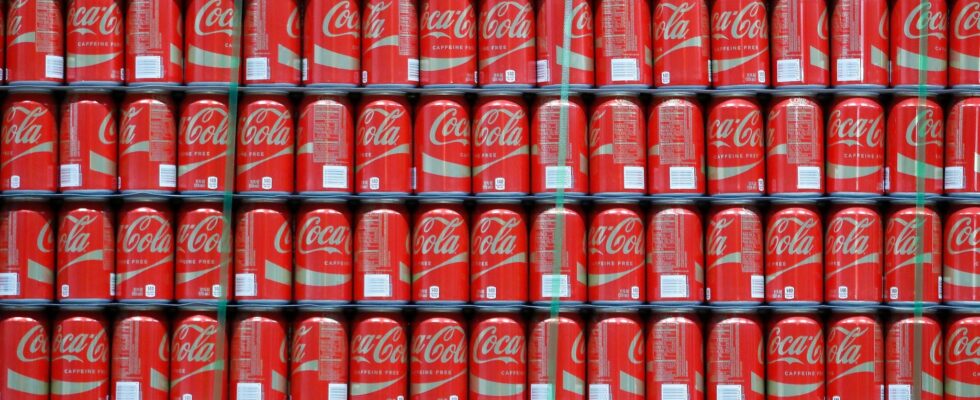The marriage between Coca-Cola and the Olympic Games, on the occasion of the 1928 edition in Amsterdam, has been going on for almost a hundred years. The soda brand has always made sport one of its main showcases. Who remembers the iconic hip swing of footballer Roger Milla, in the round of 16 of the 1990 World Cup, celebrating his goal against Colombia at the corner flag? 30 years later – on the occasion from a commercial made for the South African edition – the famous soft drink takes the stage again before parading, over the years, other men in crampons successively improvising as twisters, b-boys or disco dancers. The camera, after its travelling temporal, returns to the Cameroonian muse. All smiles in the middle of a packed stand, the former legend of the fields delights in a good bottle of Coca-Cola beading with condensation.
However, the BMJ Global Health journal recalls – in an article consulted by AFP this Wednesday, August 7 – that the sodas sold by the Coca-Cola Company have a “low or non-existent nutritional interest”. At Euro 2021, Cristiano Ronaldo already highlighted the oxymoron that lies in the association of sport, and its importance for health, with the American drink. The Portuguese superstar, during a press conference, had pushed aside the bottles in front of him before brandishing another one, this time filled with water. The publication of BMJ Global Health journalcriticizing Coca-Cola’s “sportswashing” is added to the trial in greenwashing – communicating with the public using the ecological argument in a misleading manner to improve its image – which has been done to it for several days.
“By continuing to partner with Coca-Cola, the Olympic movement risks being complicit in the worsening of a global epidemic of poor nutrition, environmental degradation and climate change,” denounce Trish Cotter and Sandra Mullin, the two authors of the publication distributed by BMJ Global Heath journal. Both are responsible for the NGO Vital Strategies, which specializes in public health issues. In July, the latter relayed the petition Kick Big Soda out of sport – “Ban sugary drinks from the world of sport” in French – launched on July 8, at the call of “leading international health organizations”.
Asked by AFP, the group said it was “constantly adapting its product range by reducing added sugars”. It also considered that its funding for the Olympic Games is “crucial to enable athletes around the world to train, prepare and participate in the Games”.
Harmful consequences for health
Soft drinks are “one of the main drivers” of widespread diseases worldwide such as obesity and diabetes, the authors point out, calling on the International Olympic Committee (IOC) to sever its ties with Coca-Cola. On July 17, Vital Strategies featured Dr. Barry Popkin. The professor emeritus of nutrition at the University of North Carolina School of International Public Health stated that: “The most insidious actions of the sugary beverage industry come from their marketing strategies, which disproportionately target children and adolescents.”
These consumption habits are ingrained and continue into adulthood. Between 1997 and 2020, the obesity rate among young people aged 18 to 24 increased fourfold, according to Health Insurance. Among all adults, 8.5% were obese in 1997, this rate was 17% in 2020. This is why the Minister of Sports, Amélie Oudéa-Castéra, attracted the ire of doctors at the end of 2023, after posting photos of herself with Coca-Cola representatives. She acknowledged an unfortunate choice in terms of image, rejecting any complacency with the group.
